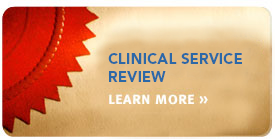Peer Review as Education
Functioning properly, the peer review process is an effective mechanism for educating physicians.
Too often, peer review is seen as a confrontational process designed solely to discipline physicians. In fact, peer review is a useful, established procedure for upgrading a physician’s clinical knowledge, enhancing his/her medical practice, reducing medical errors and improving patient safety.
The key to effective educational peer review is early detection and swift action to re-educate the physician.
If the hospital acts with a sense of urgency, most physicians are receptive to education and appropriate adjustments to clinical practice patterns and behavior. Hesitance, delay, inattention or, in many instances, the fear of acting may exacerbate the situation to such an extent that adversarial remedial action becomes necessary. The issues, which may have been resolved earlier by education, can then only be resolved by confrontation.
Approaching peer review as an opportunity to educate physicians promotes a professional atmosphere of collegiality to resolve issues. By avoiding adversarial activities, the hospital preserves its resources, both financial and political.
Most importantly, educational peer review, on an individual and institutional level, is instrumental in identifying, tracking and resolving inappropriate clinical performance and medical errors at their initial stages, thereby increasing patient safety and the quality of patient care.

